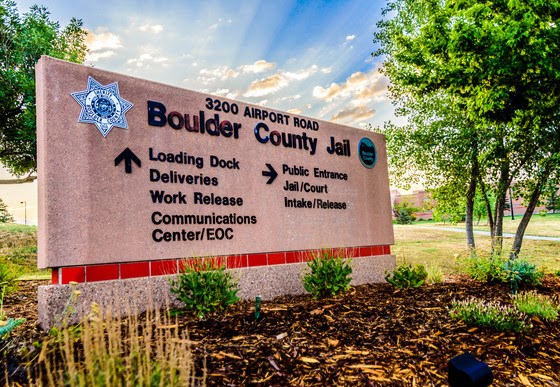The number of felony open warrants in Boulder County has more than doubled since 2019, according to court data obtained by the district attorney’s office.
The number of outstanding felony warrant cases — which includes arrest warrants and failure to appear in court cases — went from 155 in 2019 to 323 so far this year:
- 2019: 155 felony cases
- 2020: 195 felony cases
- 2021: 219 felony cases
- 2022 (YTD): 323 felony cases
The number of people out on the streets with outstanding warrants increased during the pandemic as the Boulder County Jail restricted its intake, Boulder County Sheriff Joe Pelle explained.
“We had a deputy on a respirator, we had several deputies hospitalized, we had inmates hospitalized — it was bad for a while,” Pelle said. “We were seeing people issued summonses for more serious offenses, like auto theft and that type of thing, and a lot of people from a lot of counties — not just ours — started building up failure-to-appear warrants from those summonses.”
The number of outstanding warrants grew, and even though the jail is now back at full capacity, the justice system is still playing catch up, the sheriff said.
In Longmont, the number of misdemeanor outstanding warrants also grew, the court data shows:
- 2019: 78 cases
- 2020: 62 cases
- 2021: 80 cases
- 2022 (YTD): 166
The growing number of open warrants has been one of the factors behind increased crime rates, said Longmont Police Chief Jeff Satur.
“If somebody’s not held accountable for their initial crimes, they don’t always stop doing what got them contacted by the police — you know, shoplifting, auto theft — any number of some of those lower crimes,” Satur explained. “It doesn’t take long to start stacking those cases up if you’re not being held accountable for your initial cases.”
Many people miss multiple court dates, and police officers often see those same people on the streets committing minor crimes, Satur said.
“It’s not great for officers’ morale, and it’s not great for our community either,” he explained. “If you commit a crime over and over, at some point you need to be in jail, so you don’t continue to victimize the community — that’s not fair to the communities, that’s not fair to the victims.”
Satur said he thinks more people will be held accountable as the justice system recovers from the pandemic backlog.
“I think our judges are aware now that when we contact this person, and they have seven warrants for their arrest, letting that person out is not going to ensure they’re coming back,” he explained.
Michael Dougherty, Boulder County district attorney, said his office worked hard to ensure people were held accountable during the height of the pandemic, so they wouldn’t continue to commit crimes.
“There were other offices in parts of the country — other DAs offices — that at the height of the pandemic just dismissed whole groups of cases,” Dougherty explained. “They decided, ‘you know what, we’re just going to dismiss every shoplifting case’ — we refuse to do that, because it’s the wrong thing to do, and I’m stubborn, quite frankly.”



